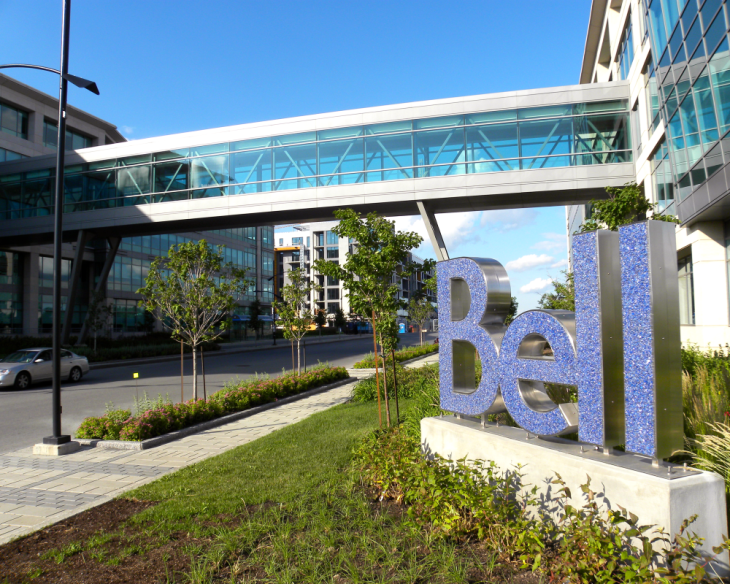
Sale of infrastructure also not out of the cards
By Ahmad Hathout
Bell’s chief financial officer said Thursday that leasing internet from Telus in western Canada is not out of the cards, but that owning the infrastructure is preferred for cash flow.
“It’s an opportunity for sure,” Curtis Millen said during a conference hosted by CIBC when asked about using Telus’s network in areas Bell doesn’t operate in. “We’ve had plenty of time to think about this.”
Bell, unlike Telus, is opposed to the CRTC policy of allowing the three largest telecoms to use the wholesale internet regime because the telco believes it disincentivizes investment in networks.
But while fibre ownership is Bell’s preferred method of delivering services, if it does come to it, Millen said the vertically integrated telco has a compelling package to compete against Telus in its home court.
“We have direct to consumer content,” said Millen. “So our ability to bundle is not just mobility and internet – which is kind of how we’ve all thought about this – there’s really mobility, internet and content. So, I mean, we have a pretty compelling kind of direct consumer package that we can offer.
“But again, owner economics are just much better,” he added. “So the idea of entering a market with somebody else’s fiber and being price aggressive against them, it doesn’t make that much sense again if you just try to drive free cash flow.”
Telus uses Bell’s fibre network to deliver internet services in parts of Ontario and Quebec. It has also asked the CRTC to provide it an equal opportunity to purchase premium content, especially that owned by Bell and Rogers, to elevate the bundle – a key instrument to keep customers loyal to the company.
The CRTC’s decision to twice-affirm the wholesale internet framework has meant Bell is cutting back on its fibre spending target, meaning fewer homes will be connected to direct fibre than initially scheduled by the end of this year. The company has built out fibre to approximately eight million homes.
Another business opportunity Bell isn’t ruling out is selling parts of its infrastructure to generate cash upfront.
“I think our infrastructure is wildly valuable,” Millen said in response to a question about the sale by its largest peers of minority stakes in infrastructure.
Rogers closed the sale of a minority stake in a portion of its wireless transport infrastructure for $7 billion in April, while Telus closed the sale of a minority stake in a company, Terrion LP, holding nearly 3,000 of its towers in September.
“I saw what Telus did in terms of towers, and they keep control,” Millen said. “So, of interest, I think we’ll look at that.”
But there’s a caveat. “There’s still a strategic value in infrastructure,” he said. “So I marry the kind of short-term gain and the value arbitrage with any strategic give you might have to sell off at the same time and trade that off.
“And frankly, if I’m going to sell off any quantifiable or kind of qualitative strategic value, you need to make sure that you’re getting paid for it up front. So, you know, we’ll look at it. We’ll consider it. Fundamentally, there’s a ton of value in our infrastructure assets.”
Bell CEO Mirko Bibic said in August that the company views its infrastructure “as potentially a valuable source of capital and we fully recognize the strategic value of a lot of our infrastructure. That could be towers, could be AI fabric, it could be other things … we’re gonna remain open to exploring opportunities and under the right conditions going forward.”
Telus’s CFO Doug French said at the same conference Thursday that the telco is also going to “keep looking at those opportunities.
“I think it was a start into an uncomfortable zone,” he said about the Terrion deal. “Canadians haven’t given up access to infrastructure assets very much. We’re late to the game in tower infrastructure, but it was a very good and prudent move at the time.”
But Quebecor President and CEO Pierre Karl Peladeau disputed the wisdom of such transactions, believing that these transactions could impair future free cash flow and carry additional interest costs.


